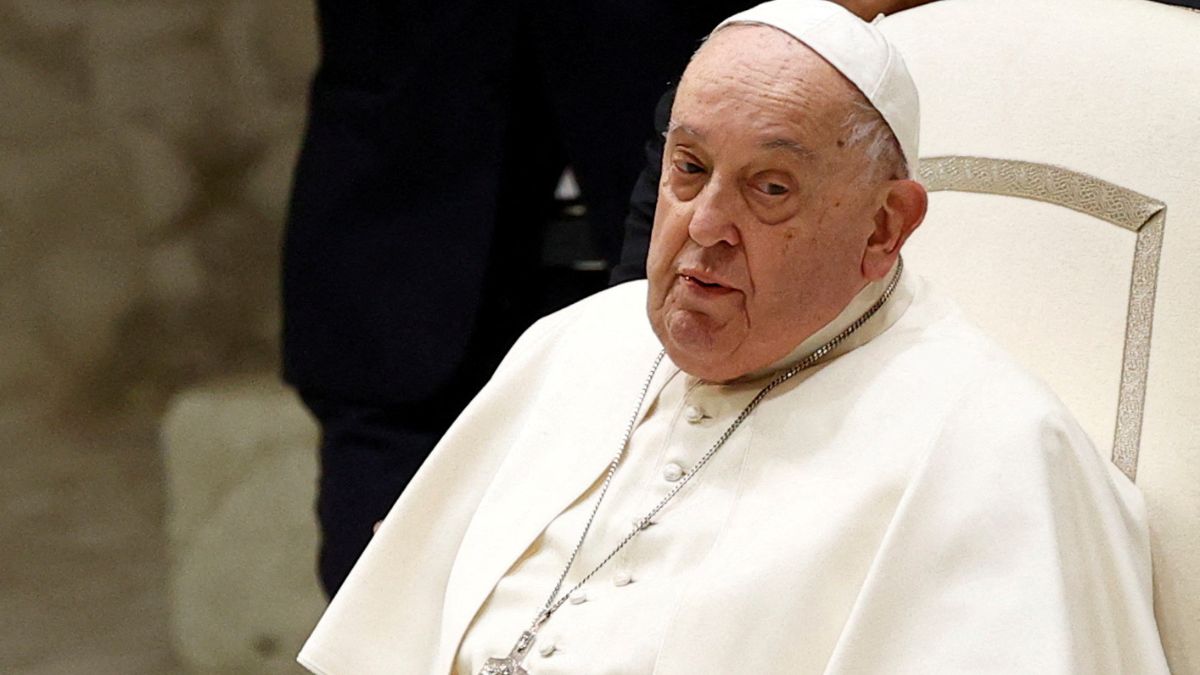Pope Francis’ health continues to be a concern after his diagnosis of double pneumonia. The 88-year-old pontiff is currently recovering at a hospital in Italy’s Rome, with the Vatican saying he ate breakfast out of bed on Thursday (February 20) morning after a peaceful night.
The Vatican said yesterday that the pope’s new blood tests revealed a “slight improvement” in some inflammation indices. As he recovers, his ill health has stoked a question in the Catholic world: Will Pope Francis resign?
Can a pope even call it quits? Will anyone okay his resignation? Let’s take a look.
Do popes resign?
Yes. While there has not been much historical evidence, popes have resigned in the past.
However, in modern times, only one pontiff has done so – yet. Francis’ predecessor, Benedict XVI, shocked the world by announcing his resignation in February 2013.
He resigned because of advancing age as he felt he “lacked the strength to carry on a superhuman task.” Benedict was the first pope to stand down from the papacy in 600 years, paving the way for Francis ’ election as the first pope from South America.
In 2005, it came to light that Pope John Paul II had also mulled resigning before. He had written in his will and testament that he hoped God “would help me to recognise how long I must continue this service”, reported BBC.
Historians have speculated that during World War II, Pope Pius XII had drawn up a document stating that in the event of his kidnapping by the Nazis, he was to be considered to have quit the papacy and a successor should be chosen. However, there is no evidence to verify this.
Before Benedict, the last pope to have actually resigned was Pope Gregory XII, who called it quits in the 15th century to bring an end to the Western Schism.
Going further back, in 1294, Pope Celestine V issued a solemn decree to allow popes to resign and then did it himself.
How do popes resign?
Like others, popes also have to write a letter of resignation to step down. This letter is to be submitted to the College of Cardinals, the supreme electoral body of the Catholic Church. However, there are no requirements for approval from the church body.
Under Canon Law, such a resignation should be “freely and properly manifested”. If a papal’s resignation is induced by fear or fraud, it would be considered invalid.
It also requires the pope to be of sound mind.
Will Pope Francis resign?
Pope Francis has had two major operations and uses a wheelchair because of bad knees. His poor health has caused alarm recently as he has been forced to regularly cancel audiences.
He has previously revealed that he wrote a resignation letter, shortly after being elected pontiff in 2013.
In an interview with the Spanish newspaper ABC in 2022, Francis said he gave the note to Cardinal Tarcisio Bertone, the then Vatican secretary of state. As per NPR, the pope added that he assumed that the prelate who was occupying the post currently had the letter.
“I signed it and said: ‘If I should become impaired for medical reasons or whatever, here is my resignation. Here you have it,’” Francis told ABC, referring to Cardinal Bertone.
The pope has also touched upon the topic of resignation owing to ill health in his autobiography, Hope, published last week.
“Each time a pope takes ill, the winds of a conclave always feel as if they are blowing,” the 88-year-old pontiff wrote. “The reality is that even during the days of surgery I never thought of resigning.”
He added: “The Church is governed using the head and the heart, not the legs.”
If Francis does make a decision to exit the papacy, a conclave will convene swiftly to elect his successor. After a Pope dies or resigns, the successor is usually chosen from the Cardinals, a team of close advisors to the Pope.
For now, Pope Francis stays on as the head of the Catholic Church.
With inputs from agencies
)